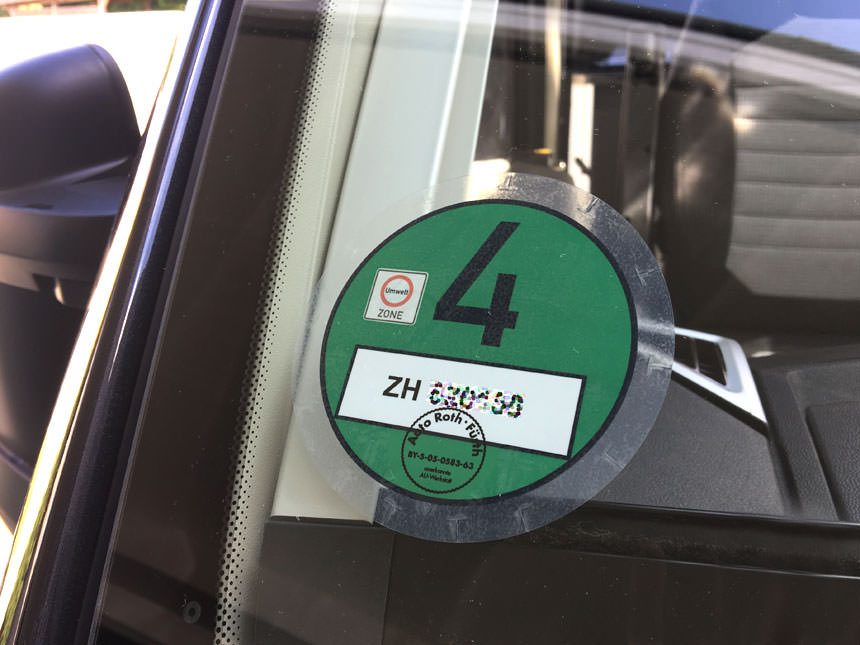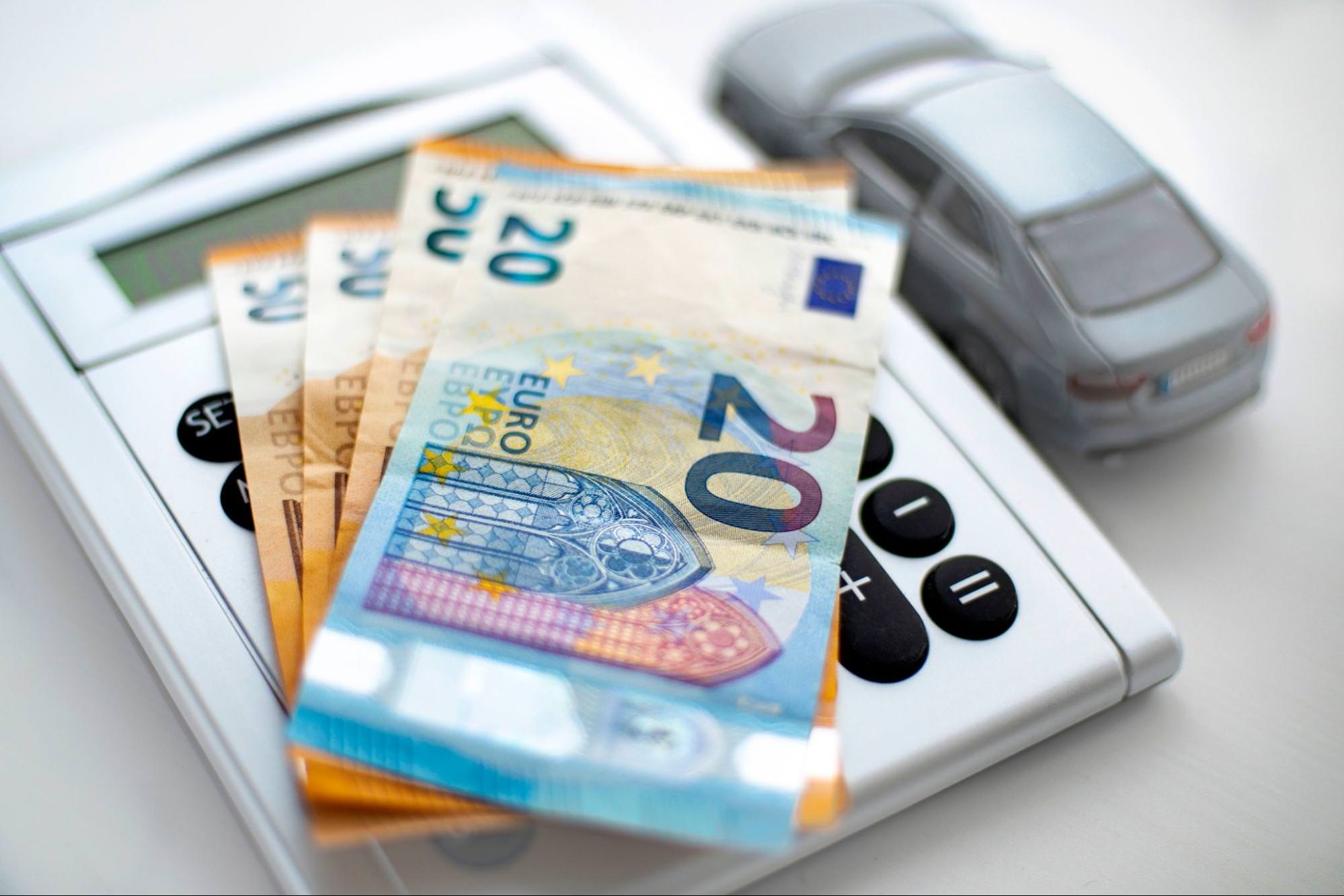- Blog
- Vodič za trgovce: Porezi na automobile u Njemačkoj
Vodič za trgovce: Porezi na automobile u Njemačkoj
Upoznajte se s njemačkim porezima na automobile kako bi vaš prodavač rabljenih automobila mogao ostati u skladu s propisima i točno odrediti cijene vozila.

Trgovci koji se bave rabljenim vozilima moraju se stalno snalaziti u svim pravnim i financijskim aspektima poslovanja kako bi ostali u skladu s propisima.
Uostalom, možete ostvariti profit samo ako razumijete poreze i pristojbe koji utječu na svaku prodaju.
Poznavanje načina plaćanja poreza na automobile u Njemačkoj ne samo da vam pomaže da budete u skladu s propisima, već i pomaže u izgradnji povjerenja s kupcima - bilo da se radi o privatnim kupcima, drugim prodavačima ili klijentima s voznim parkom.
Dakle, pogledajmo bitne poreze na automobile u Njemačkoj o kojima morate biti svjesni.
Porezi na automobile u Njemačkoj
Prilikom kupnje ili uvoza automobila u Njemačku potrebno je uzeti u obzir tri ključna poreza , a to su:
- Porez na motorna vozila (Kfz-Steuer)
- PDV za uvezene automobile
- Značke emisije (Umweltplakette)
Sada ćemo vidjeti više o svakom od njih.
| Porez / Naknada | Što je to | Kada se plaća | Tko plaća |
|---|---|---|---|
| Kfz-Steuer | Godišnji porez na motorna vozila | Svake godine nakon registracije | Registrirani vlasnik |
| PDV (MwSt) | Porez na dodanu vrijednost na uvezene automobile | Pri uvozu / prilikom donošenja automobila u Njemačku | Uvoznik / kupac |
| Uvozna carina | Carina za uvoz izvan EU | Pri uvozu (samo izvan EU) | Uvoznik / kupac |
| Naknada za značku za emisije | Cijena naljepnice za zonu s niskim emisijama | Prije vožnje u zonama s niskom emisijom | Korisnik/vlasnik vozila |
Porez na motorna vozila (Kfz-Steuer)
Njemački porez na motorna vozila naziva se Die Kraftfahrzeugsteuer , često nazivan Kfz-Steuer . Vlasnici vozila plaćaju ovaj porez godišnje.
Iznos koji ćete platiti nije fiksan; ovisi o čimbenicima kao što su:
- Kapacitet motora vozila
- Vrsta goriva
- Emisije CO₂.
Na primjer, benzinski automobili naplaćuju se 2,00 € za svakih 100 ccm, dok se dizelska vozila oporezuju s 9,50 € na 100 ccm. Osim toga, ako emisije CO₂ prijeđu određena ograničenja, postoje dodatne naknade.
PDV za uvezene automobile
Kao i u svim zemljama EU, morat ćete platiti porez na dodanu vrijednost (PDV) prilikom uvoza automobila u Njemačku.
Standardna stopa PDV-a u Njemačkoj iznosi 19%.
Kao prodavač rabljenih automobila, morat ćete biti oprezni i uvijek provjeriti je li PDV već uključen u kupovnu cijenu automobila koji kupujete za svog prodavača.
Ako nije, morat ćete prijaviti automobil i platiti 19% PDV-a prilikom unosa u Njemačku.
Za automobile koji dolaze izvan EU-a, uz PDV se plaća i uvozna carina, obično 10% vrijednosti automobila.
Kako biste bili sigurni da pokrivate sve osnove s uvoznim carinama i PDV-om , dobro je provjeriti s poreznim stručnjakom ili njemačkom carinom.
Značke emisije (Umweltplakette)
Njemačka je u mnogim gradovima uspostavila zone s niskim emisijama kako bi smanjila zagađenje. Za vožnju u tim područjima automobili trebaju imati ploču za emisije, nazvanu Umweltplakette.

Dakle, iako značke za emisije nisu baš porezi, one su i dalje trošak koji morate uzeti u obzir. Značka pokazuje razinu emisije automobila i potrebna je za ulazak u područja s niskim emisijama. Ako nemate odgovarajuću značku, mogli biste dobiti kaznu.
Umweltplakette možete kupiti u sljedećim organizacijama za tehnički pregled vozila:
Cijene će varirati, ali se uglavnom kreću u rasponu od 6,00 € do 20,00 €.
Otkrijte kvalitetna vozila iz vodećih njemačkih automobilskih centara!
Kako izračunati porez na automobil u Njemačkoj?
Iako porez na automobil nije fiksan, i dalje ga možete izračunati unaprijed kako biste izbjegli iznenađenja.
Evo kako funkcionira izračun poreza ovisno o datumu registracije automobila.
Ovdje možete pronaći sveobuhvatan pregled, a sažetak donosimo u nastavku.
Za automobile registrirane prije 31.08.2018.
- Postoji dopuštena količina CO₂ koja varira ovisno o godini registracije: 120 g/km u 2011., 110 g/km u 2013. i 95 g/km u 2014.
- Porez: 2,00 € za svaki gram CO₂ iznad dopuštene količine.
Za automobile registrirane između 01.09.2018. i 31.12.2020.
- Dozvoljena emisija CO₂: 95 g/km.
- Porez: 2,00 € za svaki gram CO₂ iznad 95 g/km, izračunato prema WLTP-u (novi standard ispitivanja emisija) .
Za automobile registrirane od 01.01.2021. nadalje
- Porezna stopa raste s većim emisijama CO₂:
- 95 – 115 g/km: 2,00 € po gramu.
- 115 – 135 g/km: 2,20 € po gramu.
- 135 – 155 g/km: 2,50 € po gramu.
- 155 – 175 g/km: 2,90 € po gramu.
- 175 – 195 g/km: 3,40 € po gramu.
- Preko 195 g/km: 4,00 € po gramu.
Ukratko, automobili s većim emisijama registrirani od 2021. nadalje plaćaju veći porez po gramu CO₂, što potiče kupce da se odluče za vozila s nižim emisijama.
Stope poreza na motorna vozila za različite vrste vozila
Emisije i datumi registracije nisu jedini kriteriji koji određuju porez na motorna vozila u Njemačkoj.
Vrsta vozila također igra ulogu, a svaka kategorija ima svoja specifična porezna pravila .
Usredotočit ćemo se na električna vozila, laka komercijalna vozila i motocikle, budući da europski trgovci rabljenim vozilima najčešće trguju njima.
Električna vozila
Električni automobili registrirani između 2016. i 2025. godine uglavnom su oslobođeni poreza na motorna vozila prvih deset godina.
❗ Ovo izuzeće vrijedi najkasnije do 2030. godine, čak i ako je automobil registriran bliže tom datumu .
Dakle, ako registrirate automobil 2025. godine, izuzeće će i dalje završiti 2030. godine, umjesto da traje punih deset godina.
Nakon 2030. godine električna vozila oporezivat će se na temelju njihove ukupne težine, ali po sniženoj stopi, koja je 50% niža od stope za tradicionalna vozila.
Ovo smanjenje čini električne automobile pristupačnijim i ekološki prihvatljivijim izborom dugoročno.
Laka komercijalna vozila
Kada su u pitanju laka komercijalna vozila (LCV) do 3,5 tona, Njemačka izračunava porez na motorna vozila na temelju težine vozila, a ne emisija kao kod osobnih automobila.
Zbog toga su porezi na LCV obično niži.
Motocikli
Porez na motocikle izračunava se na temelju obujma motora. Laki motocikli do 125 ccm oslobođeni su poreza, dok se veći motocikli oporezuju s 1,84 € po 25 ccm .
Druga financijska razmatranja za trgovce automobilima
Sada ste vidjeli što možete očekivati prilikom plaćanja poreza na motorna vozila (Kfz-Steuer), PDV-a za uvezene automobile i oznaka za emisije (Umweltplakette).
Međutim, kao trgovac rabljenim automobilima, postoji nekoliko drugih troškova koje treba uzeti u obzir prilikom određivanja cijene:
- Cestarine : primjenjuju se na određena vozila, posebno teška, prilikom korištenja njemačkih autocesta.
- Carine : primjenjuju se na uvoz izvan EU.
- Porez na službeni automobil : ako prodajete drugim tvrtkama, imajte na umu da mnogi poslovni klijenti mogu trebati automobile za privatnu upotrebu zaposlenika, što se računa kao oporeziva pogodnost.
Imajući na umu sve ove troškove, moći ćete preciznije odrediti cijene i osigurati pokrivanje svih potrebnih troškova, čineći svoje poslovanje konkurentnim i usklađenim s njemačkim propisima.
Porezi na automobile u Njemačkoj
Kao što vidite, porezi na automobile u Njemačkoj nisu jasni; ovise o više čimbenika.
Ali sve dok unaprijed istražite i pogledate online kalkulatore poreza, moći ćete točno procijeniti troškove.
Na taj način možete biti sigurni da cijena rabljenih automobila koje prodajete pokriva sve troškove.
eCarsTrade nudi internetske aukcije automobila ex-lizing vozila iz Europe!


